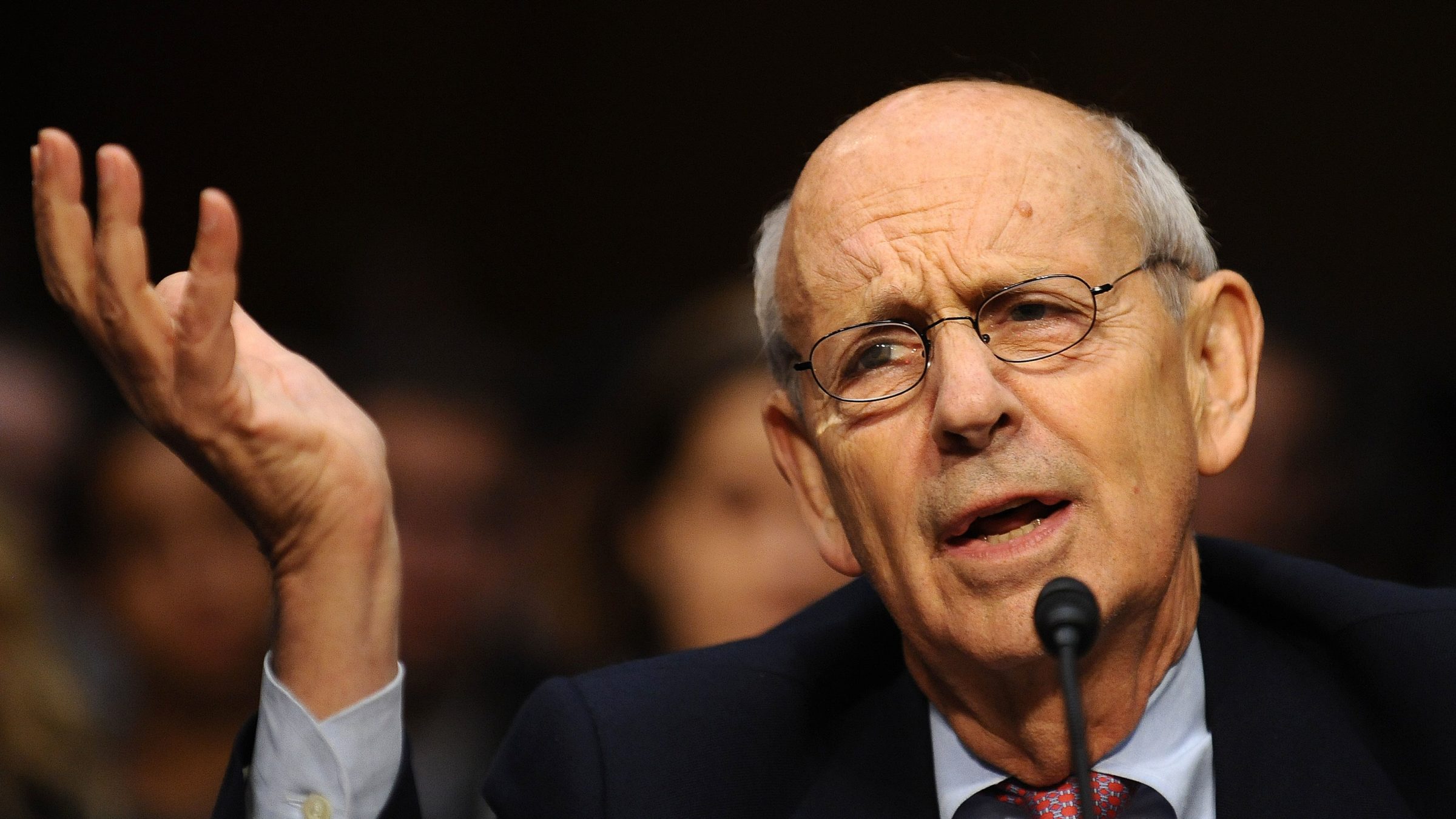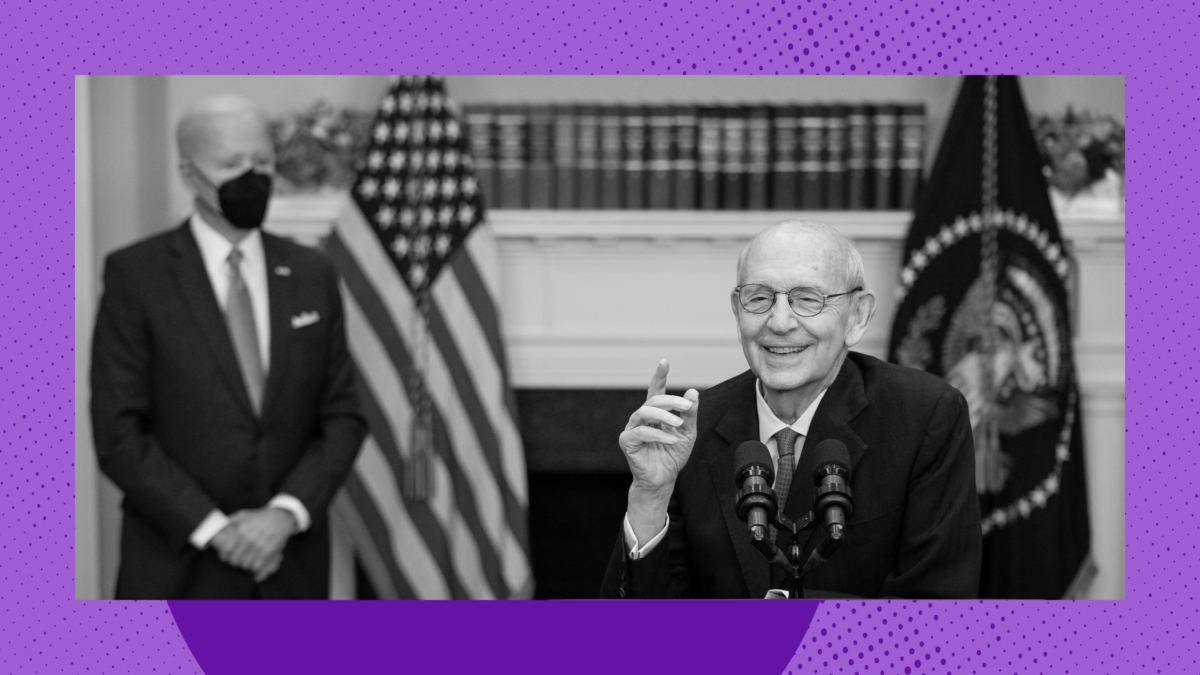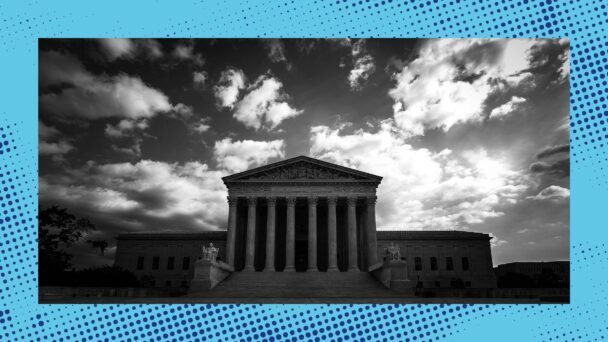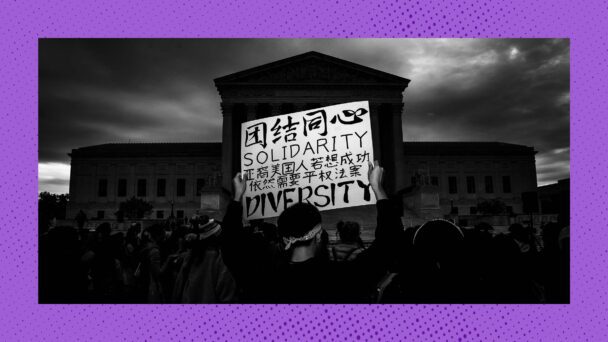Stephen Breyer retired from the Supreme Court in 2022 after progressives urged him, the Court’s then-oldest liberal justice, to step down, allowing President Joe Biden and a Democratic-controlled Senate to nominate and confirm his successor. Breyer’s decision allowed Biden to make good on his promise to appoint the first Black woman to the Court, Justice Ketanji Brown Jackson, a few months later.
But it isn’t as if Breyer were put out to pasture, never to be seen or heard from again. In March, Breyer, now a professor at Harvard Law School, published his tenth book, and he remains active on the speaking circuit. Earlier this week, he sat for an interview with ABC News in which he said he still sees “a role” for himself at the Court. What’s less clear is whether that role, as Breyer understands it, is at all useful for keeping the Court’s conservative supermajority from bulldozing civil rights with impunity.
For example, at one point, ABC’s Devin Dwyer asked Breyer why the public should “trust” that the justices are abiding by their ethics code, which, as Dwyer noted, contains no enforcement mechanism and no independent oversight. Breyer responded: “Because the only way you can really punish a federal judge is by impeachment. They wrote that in the Constitution.”
This is so unresponsive to the question that I at first wondered if ABC had made an error in the interview transcript. In no way is the existence of a potential punishment—one that was last used successfully over 200 years ago, no less—a reason to trust the justices. Breyer might as well have said, “You can trust them because you have no other choice.”
As the U.S. Supreme Court prepares to release major rulings in a historic series of cases this spring, retired Associate Supreme Court Justice Stephen Breyer speaks to @DevinDwyer on the embattled institution at this critical moment. pic.twitter.com/rAJKQRA3ui
— ABC News Live (@ABCNewsLive) May 1, 2024
Dwyer pressed further on the Court’s free rein with respect to ethics, mentioning concerning “headlines about some of your former colleagues.” (He didn’t say Clarence Thomas is out here doing things like rebooting MTV’s Pimp My Ride, but he’s talking about Clarence Thomas doing things like rebooting MTV’s Pimp My Ride.) “You don’t think there needs to be any independent review of that?” asked Dwyer.
“I didn’t say that,” answered Breyer. “What I said was there was only one real way of punishing the judge, and that’s to impeach.” Again, Breyer is backing away from the logical conclusion: His response could have made sense if it were followed by “so impeach them,” or “so alternative disciplinary mechanisms are clearly necessary.” But just saying that impeachment exists is like asking a person caught in the rain if they’ve heard of umbrellas—unless you have an umbrella for them, they’re still going to get soaked.
When asked in nonspecific terms about whether the political activities of certain justices’ spouses can be problematic—a clear reference to Thomas hearing cases related to a coup that his wife, GInni, helped facilitate—Breyer responded with a light joke about girl power: “I thought this was a period when women made their own decisions,” he said. Breyer knows, or should know, that neither Thomas is any friend to feminism, yet he invoked the idea of women’s rights to dodge a question about an actual threat to women—the end of democracy.
The country can’t afford these kinds of mealy-mouthed statements when billionaire-subsidized conservative justices are out here mulling over whether Republican presidents actually get to be kings. But when Dwyer turned to the issues before the Court right now, Breyer appeared unfazed by those clear and present dangers. When asked about the threat to precedents protecting same-sex marriage and contraception, for example, Breyer opined that the rulings “are less at risk than people worry about at the moment.” This sentiment may sound familiar, because talking heads made the same comments about Roe v. Wade right up until the moment the Court overruled it.
Breyer’s disregard of the risk can’t be reconciled with Clarence Thomas’s explicit call for those cases to be overturned. The conservative justices have never hidden their agenda, and people like Breyer never take them as seriously as they should.

(Photo by JEWEL SAMAD/AFP via Getty Images)
A former justice calling for Court reform would carry great weight in the court of public opinion, especially among non-lawyers. Breyer’s primetime interviews and book deals and so forth attest that he clearly still has cache as something of an elder statesman. He’s in a privileged position, possessing insider knowledge of the Court that the overwhelming majority of Americans will never access firsthand. And his heart is in the right place—Breyer’s latest book critiques the Court’s ostensibly textualist decisionmaking because he knows the decisions it makes are bad, and that it could be doing things differently. But he is making disappointingly little use of the tools at his disposal.
The most forceful directive to the conservative supermajority Breyer mustered during the interview was to “slow down, period.” This admonishment rings hollow when it isn’t backed up by any effort to limit the Court’s capacity for harm. As a retired justice, Breyer could use his freedom to call on Congress to expand the Court, or on Biden to announce his support for doing so. He could call on Chief Justice Roberts to enforce a real ethics code. He could call on the public to vote with the Court in mind as they head to the polls in November. Instead, he’s just telling his former colleagues to be a little more cautious.




